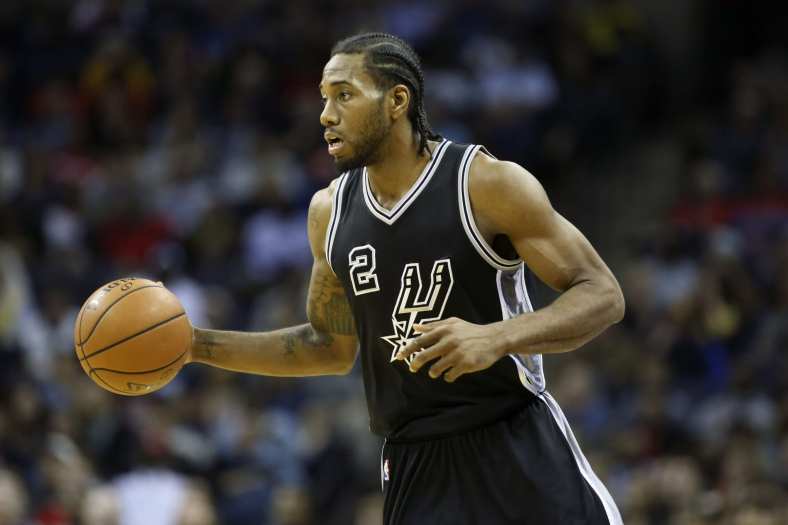
Each first-round NBA Playoff series has seen at least five games. Three of them are finished — the Cleveland Cavaliers and Golden State Warriors (predictably) moved on in four games and the Houston Rockets dispatched the Thunder in five. The rest, however, are headed to crunch time. All sit at 3-2, the losing side’s back against the wall. The team with three wins in these situations has a roughly 84 percent chance of winning the series based on history, though it often goes seven.
At this point, the coaches have shown their hands. We’ve seen coaching adjustments, and the minute weakness of every player has been put on display. Five games is still a small sample, but in a seven-game series, you have to work with it.
The playoffs, in a year like this where Golden State and Cleveland are overwhelming favorites to win their respective conferences and the Warriors overwhelming favorites to win it all, can seem like going through the motions. But even if it happens like we all think it will (and based on everything we know about sports, it won’t), there’s still virtue to these playoffs.
We’re seeing young teams like the Milwaukee Bucks –future challengers to the juggernauts — grow up before our eyes. We could be seeing the end of these Los Angeles Clippers, a team as important to this era of basketball as any. And if things go wrong, maybe we’re seeing the end of the Toronto Raptors as well.
This could be Manu Ginobili’s last dance, but it’s Gordon Hayward’s first. And on the off chance that someone pulls off an upset, we’ll remember it forever.
This matters, even if it feels like the conclusion is foregone. Let’s get right into it.
1. The Raptors found the right adjustment
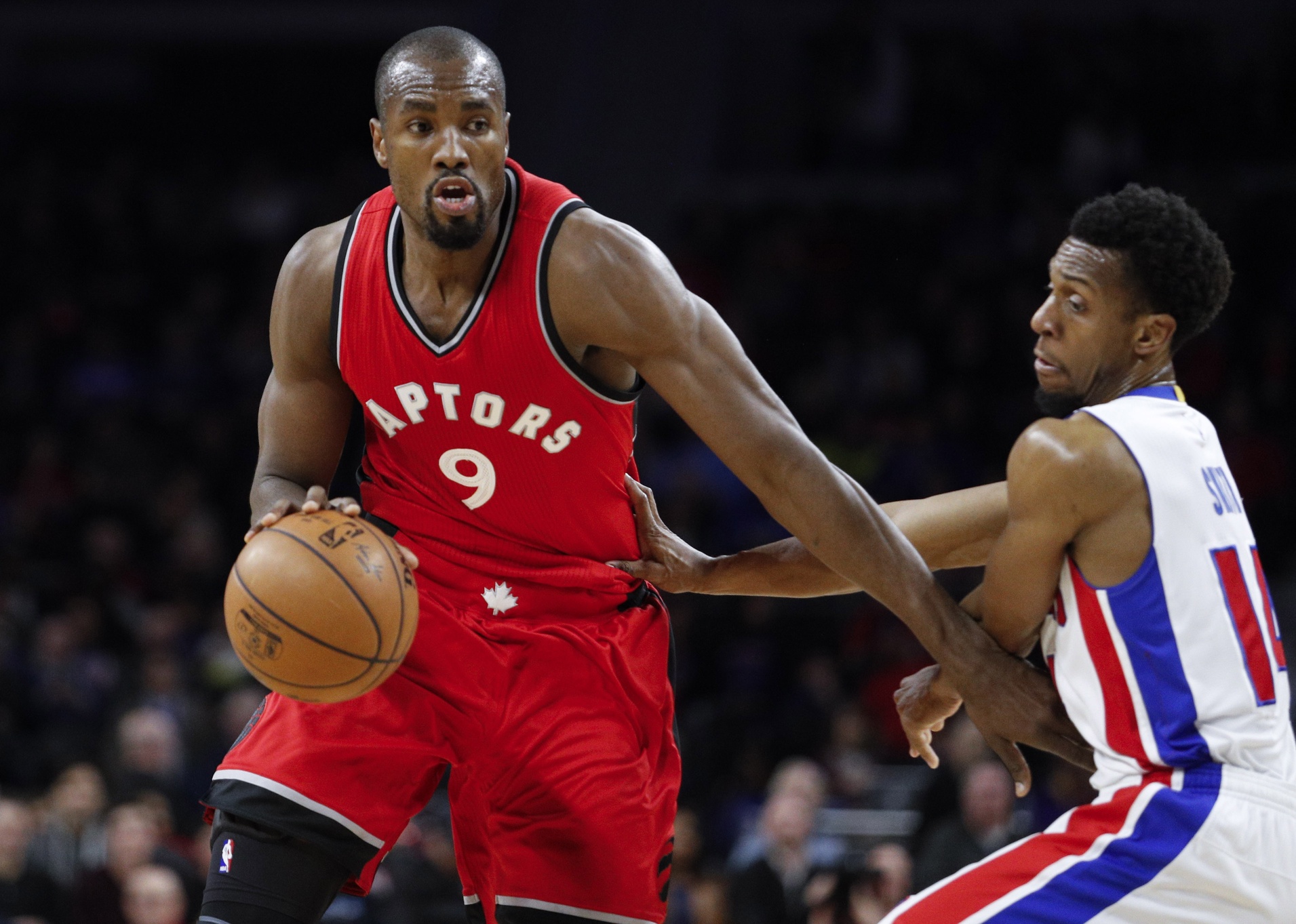
Against the Bucks, you have to move the ball constantly to win. Their length will overwhelm you otherwise, as Toronto found out the hard way in the first four games of their series. The Raptors were 27th in passes per game with just 274.6 total during the regular season. Their offense largely revolves around DeMar DeRozan ISOs and Kyle Lowry pull-up jumpers — easy plays for Milwaukee to disrupt with their length.
However, when Toronto makes moving the ball a tenant of their offense as they did in Game 5, when they threw 319 passes, even the Bucks will be late on a few rotations.
Putting Norman Powell in the starting lineup also made a difference as it forced Milwaukee shot-blocker Thon Maker away from the rim. With Jonas Valanciunas starting, Maker could camp out in the paint and easily recover should Valanciunas pop open for a mid-range jumper. Starting Powell instead means that Maker has to guard Serge Ibaka, a 39.1 percent three-point shooter who can at least keep him honest. Indeed, Powell led the Raptors in +/- during their Game 5 blowout, shooting 8-of-11 from the field and 4-of-4 from three.
Credit Dwane Casey for going small instead of sticking with something that wasn’t working.
Milwaukee has played right into Toronto’s new pass-happy style by trapping DeRozan early in the shot clock, sometimes even on the catch. Newsflash: DeMar DeRozan isn’t a 3-point shooter. You don’t have to double-team him behind the line.
The best way to expose DeRozan is attack him defensively and let Toronto’s offense stagnate around him. Sure, he’s a better shooter from midrange than most, but when he’s isolated, the Raptors aren’t moving the ball. It’s easier to double DeRozan on the left block than at the midcourt logo, and it’s more effective. During the regular season, DeRozan had a 47.7 effective field goal percentage.
Taking the ball out of his hands should not be Jason Kidd’s priority.
Don’t think this series is over. Kidd can make adjustments too, and Milwaukee’s length gives it a unique advantage defensively. Trapping DeRozan was flying too close to the sun, but Milwaukee can help without triggering ball movement when the Raptors go small if they time it right. Even if Toronto forces rotations, the Bucks can handle it if they aren’t caught out of position.
This team put on a pick-and-roll defense clinic just two games ago, and a large part of that was how easy their length made it to rotate. If Khris Middleton breaks out of his offensive funk, Milwaukee can take Game 6. From there, anything can happen.
2. Kawhi Leonard is carrying the Spurs’ load, to a worrying point
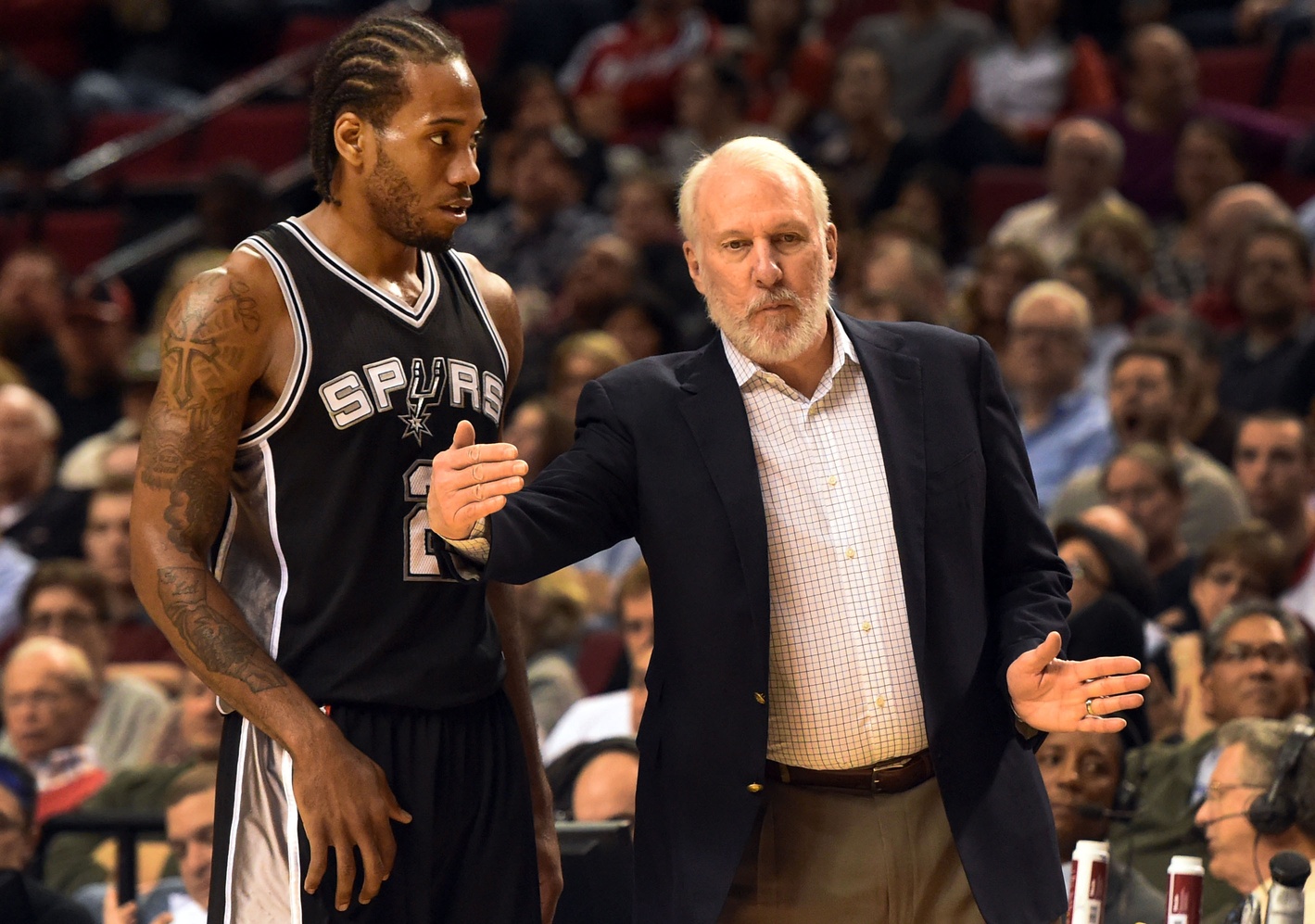
By any objective measure, the Spurs should no be having this much trouble against the Memphis Grizzlies. This is a 61-win team whose counterpart is trotting out Vince Carter’s skeleton at shooting guard. The Spurs shouldn’t be staring down the barrel of a Game 6, even if losing the series is still very unlikely.
In large part, the reason things are the way they are can be boiled down to the Spurs’ performance with Kawhi Leonard on the bench. The Spurs are +15.0 points per 100 possessions with Leonard on the floor but -8.5 per 100 in the 59 minutes he’s sat.
Twice in the series, those stretches have proven fatal as the Spurs simply haven’t mustered offense without him. Danny Green is shooting 26.3 percent from three in the series. Manu Ginobili has four field goals in the entire series. LaMarcus Aldridge isn’t carrying his load. Leonard can put the team on his back for a while — he nearly won Game 4 single-handedly — but this isn’t sustainable.
Offensively, this is solvable. Aldridge is 1-of-7 on wide open two-point field goals, per NBA.com. He’s 6-of-14 on open twos. That number can and should go up. He’s also been atrocious as a pick-and-roll finisher which will likely change as well.
Elsewhere, Green’s shooting will probably regress upward. If Pau Gasol can stay on the floor defensively, Popovich will go to him more. Thus far, the Spurs have a 108.7 defensive rating with him on the floor, but they’ve more than made up for it with a 122.5 offensive rating. However, 108 of Gasol’s 120 minutes in the series have been with Leonard. Putting Gasol on the floor without him means that nobody can put out the fires he sets on defense.
At point guard, both Tony Parker and Patty Mills have played well. In a perfect world, Mills would be starting, but Popovich won’t bench Parker — one of the faces of the franchise. Mills will have to play crunch-time eventually though, as Parker isn’t good enough defensively to justify otherwise.
There may not be a way for the Spurs to lessen Leonard’s load defensively — especially if they get by Memphis and have to match up against the Rockets next round. San Antonio managed to finish first in defensive rating during the regular season, and Popovich has figured out ways around their age. The Spurs emphasized ball denial to a near-absurd point, but it worked. They’ve scooted by against the Grizzlies doing the same but allowed 106.4 points per 100 possessions while doing so.
Teams will root out Parker, Gasol and Ginobili this time of year, and Leonard has to put out the fires. Aldridge is a fine defensive player, but not without his lapses. Dewayne Dedmon — San Antonio’s best rim protector — has been relegated to the bench. Mills is a solid defender, but he won’t slow down James Harden much in the next round.
The Spurs’ ball denial may throw off Houston’s pick and roll game — it will at least force Mike D’Antoni to implement more off ball movement — but from a matchup perspective, the Spurs have a gauntlet to run and perhaps only one player up to the challenge.
3. We may not know anything more about the Jazz or Clippers than we did two weeks ago
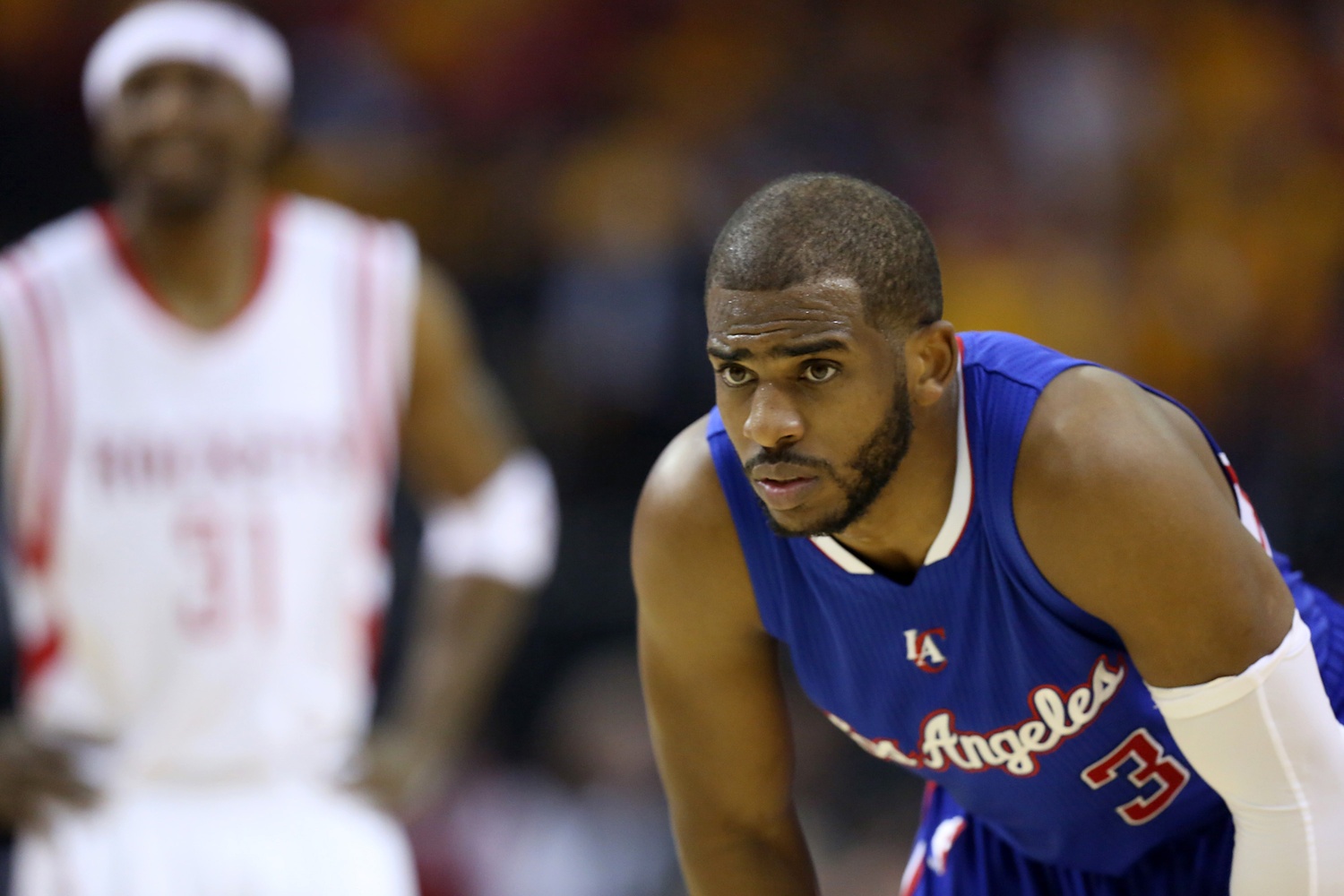
This series has been an amalgam of injuries, food poisoning, Chris Paul and Joe Johnson. Through five games, the Clippers are have an offensive rating 0.3 points higher than Utah and are down 3-2 with Game 6 in Salt Lake City. It’s not adjustments that have swung things so much as things like the health of Rudy Gobert, Austin Rivers and Blake Griffin, Gordon Hayward coming down with food poisoning, and the individual heroics of Chris Paul and (I can’t believe I’m writing this) Joe Johnson.
Each game has been close enough to swing on any of those factors, so what does that leave us with? Well, if you didn’t think of Hayward as a superstar, you should. Subtract Game 4, when he played just nine minutes thanks to a bad sandwich, and Hayward might be the best player in the series. He’s shooting 50 percent from three and nearly 60 percent from the field while grabbing 8.25 rebounds per game when you don’t include the second-worst Flu Game in Jazz history.
Utah is an exciting team. If the Warriors didn’t have a death grip on the Western Conference, the Jazz would have a real shot at this. If they take Game 6 and win this series, don’t be shocked if they end up being the toughest matchup for the Warriors. They space the floor well, everyone passes and everyone plays defense. Johnson won’t keep this up — he’s scoring an absurd 1.10 points per possession on isolations — but they’ll be healthy.
The main revelation from this series is that it could be the last time we see Lob City in action. If they lose this series, the Clippers have to break up the band. Paul is 31, DeAndre Jordan and Blake Griffin are both 28 and this core hasn’t been past the second round. Bad luck has had as much a role in that as anything, but flipping at least two of the three for assets makes sense right now. The Clippers can’t win 50 games and disappoint in the playoffs forever. This isn’t working.
4. The Wizards are winning their series in transition
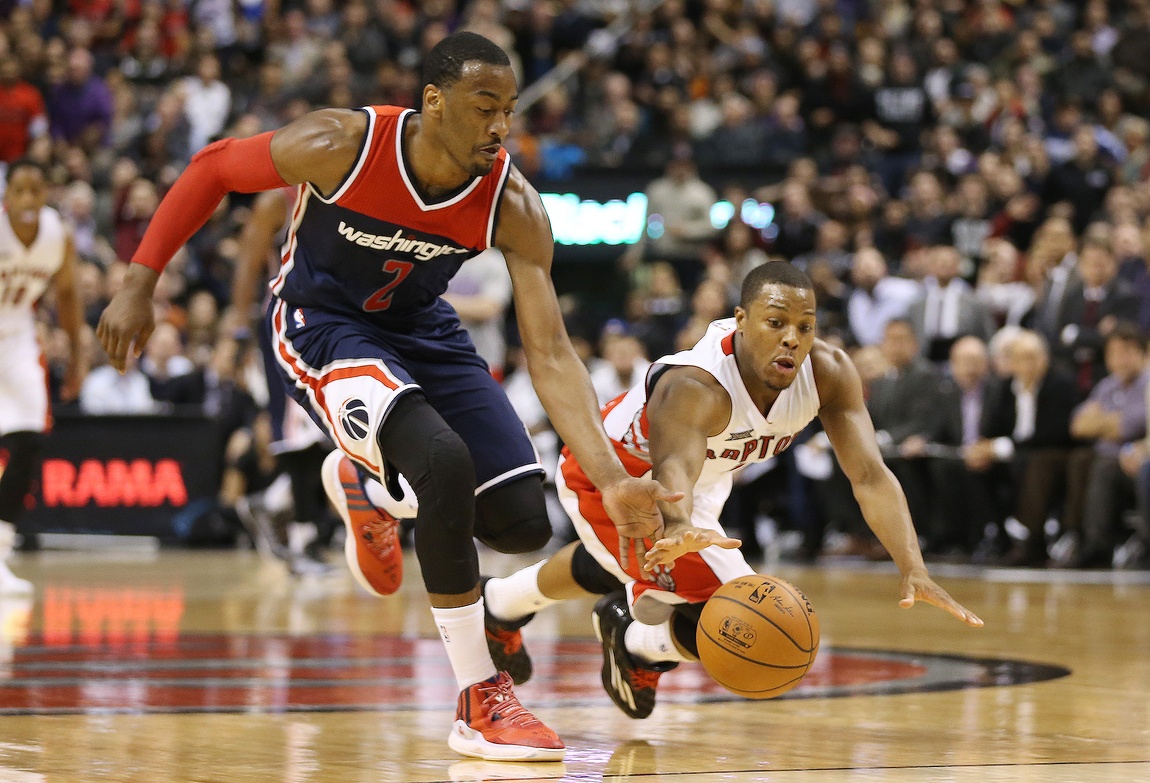
In Wednesday night’s Game 5 — a four-point Washington victory — the Wizards outscored the Atlanta Hawks 20-12 in transition. If not for some missed open shots, it would have been even worse. The Hawks are simply overmatched in transition, especially with Dwight Howard on the floor.
It’s unfair to speculate as to whether Howard is injured, but his mobility has been horrific this series. Nowhere has that been more apparent than in transition where the Wizards feasted. On one play during the fourth quarter, Wall fed an open Kelly Oubre in the corner. Oubre drove, seeing an open lane, and Howard, standing in the paint, did nothing to contest his dunk, which sent the crowd into a frenzy. That play made up half the margin of Washington’s victory.
https://twitter.com/haralabob/status/857391647075614720
The Wizards were scary in transition during the regular season — there are few prettier sights in basketball than John Wall racing down the floor like a bullet train — and the Hawks just haven’t had an answer. Every Wizards defensive rebound starts a chain reaction that inevitably ends with Wall streaking towards the paint, open shooters on both sides of him and one or two poor defenders trying in vain to stop him in the paint.
During the first four games of the series, the Wizards scored 1.11 points per possession in transition, but when Wall was involved, that number shot up to 1.52. There are tangible advantages for Atlanta in the series. They’re killing Washington when Wall and Bradley Beal sit, as Washington’s bench is an unmitigated disaster. Markieff Morris can’t seem to guard Paul Millsap without getting into foul trouble. Nobody else can guard Millsap, period.
But the Hawks can’t compete in this series without pristine defense. They don’t have the offensive weaponry to keep up with the scoring barrage brought by an unchecked Wall and Beal. Keeping up in transition is a huge part of that — something Mike Budenholzer should be emphasizing since it’s not like the Hawks are pulling down offensive rebounds (they were 20th in the category during the regular season).
If they have a prayer of coming back and winning the series, they have to make the Wizards play in the halfcourt.
5. The Bulls don’t have an answer without Rajon Rondo
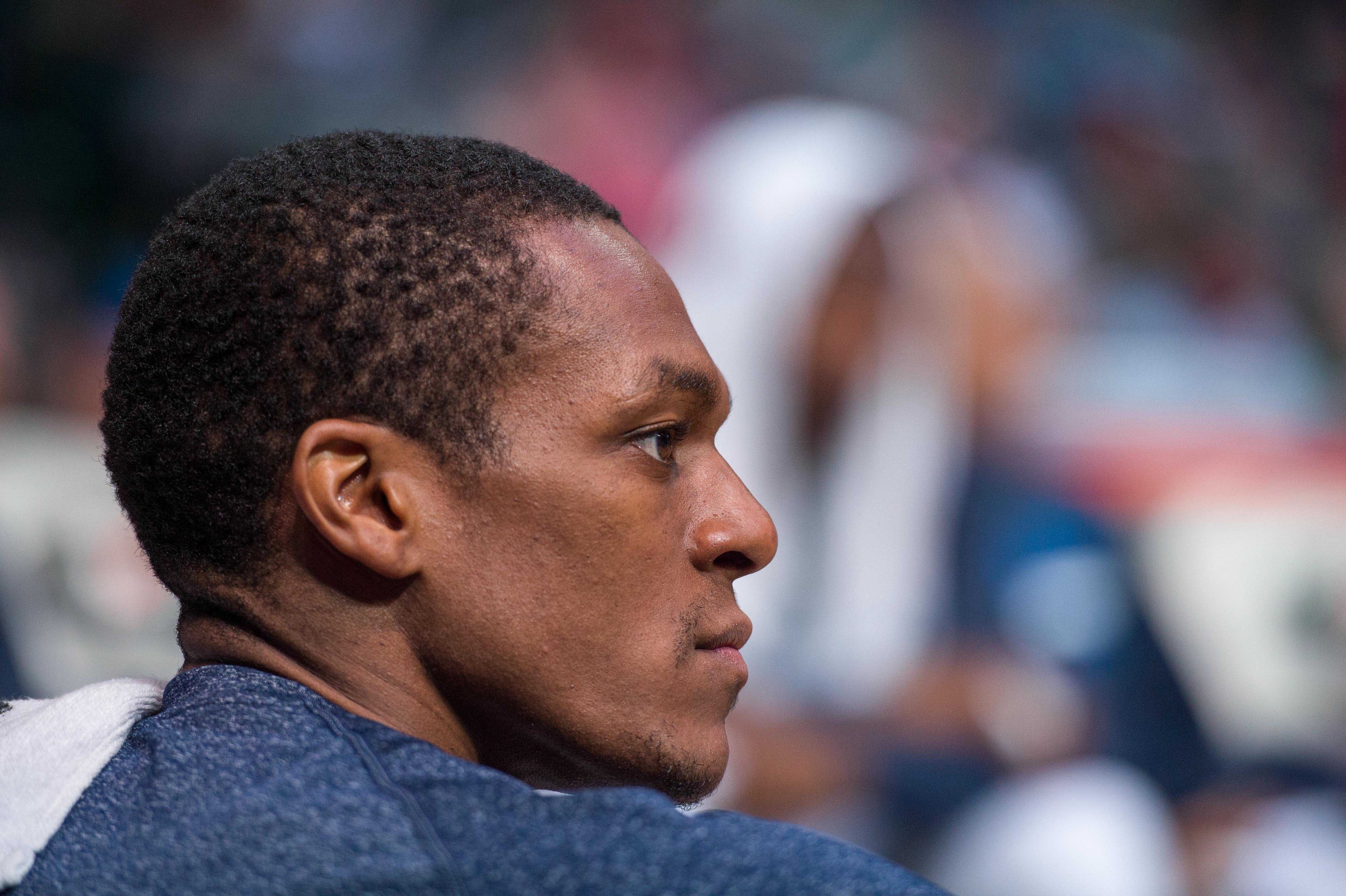
When point guard Rajon Rondo got hurt, head coach Fred Hoiberg didn’t have any good options to replace him. He chose to go with a Jerian Grant/Michael Carter-Williams rotation at point guard in Game 3 which went horribly. The Celtics barely guarded either of them and both are defensive liabilities which, bluntly, means that they did nothing useful.
In Game 4, he switched it up, but not in a way that could’ve helped. Instead of just eschewing traditional point guards altogether and letting Dwyane Wade and Jimmy Butler handle the ball, Hoiberg introduced Isaiah Canaan into the rotation. There was logic to that move — Hoiberg didn’t want a wing player forced to guard Celtics point guard Isaiah Thomas — and it worked better than Game 3. But Chicago’s offense still sputtered. In Game 5, the Bulls rinsed and repeated.
Canaan gives Thomas a hiding place on defense. The Bulls need a better strategy to force Thomas into playing defense, where he’s a massive liability. In Game 4, when Thomas had four fouls, the Bulls failed to attack him, partly because Boston head coach Brad Stevens outfoxed Hoiberg and partly because they didn’t try. Make Canaan the screener in the pick-and-roll or at least have him do stuff off the ball instead of standing in the corner. Make sure Thomas has to work on defense, not just because he’ll mess up but because it will slow him down on offense as well.
A better move may be to just take the plunge and let Wade and Butler run point. Sure, someone still has to guard Thomas, but it may be easier to do that than it is for Thomas to match up with, say, Paul Zipser on defense. (Important addendum: Wade has to try on defense, not just for this hypothetical to work, but for the Bulls to stay in the series in general. His effort was pitiful Wednesday night.)
Stevens hid Thomas on Zipser for a while in Game 4 when Thomas had four fouls and the Bulls simply had Zipser stand in the corner. It was an unbelievable gaffe from Hoiberg, who has cemented himself as the potential goat of this series.
The Bulls found a compromise in Game 5, letting Butler and Wade run point but keeping Canaan on the floor to guard Thomas. Canaan did a nice job on both ends of the floor — good enough that Hoiberg probably sticks with him in Game 6 — but the Bulls’ offense sputtered.
Moreover, an underrated part of Rondo’s injury is the part it’s played in eliminating Chicago’s rebounding advantage. With Rondo on the floor, the Bulls grabbed 38.3 percent of offensive rebounds — without him, that number has shrunk to 28.1 percent. Going point guard-less may help solve that and, at this point, it’s probably worth trying considering Rondo is a longshot to play in this series.
6. The Warriors have a shot at 16-0
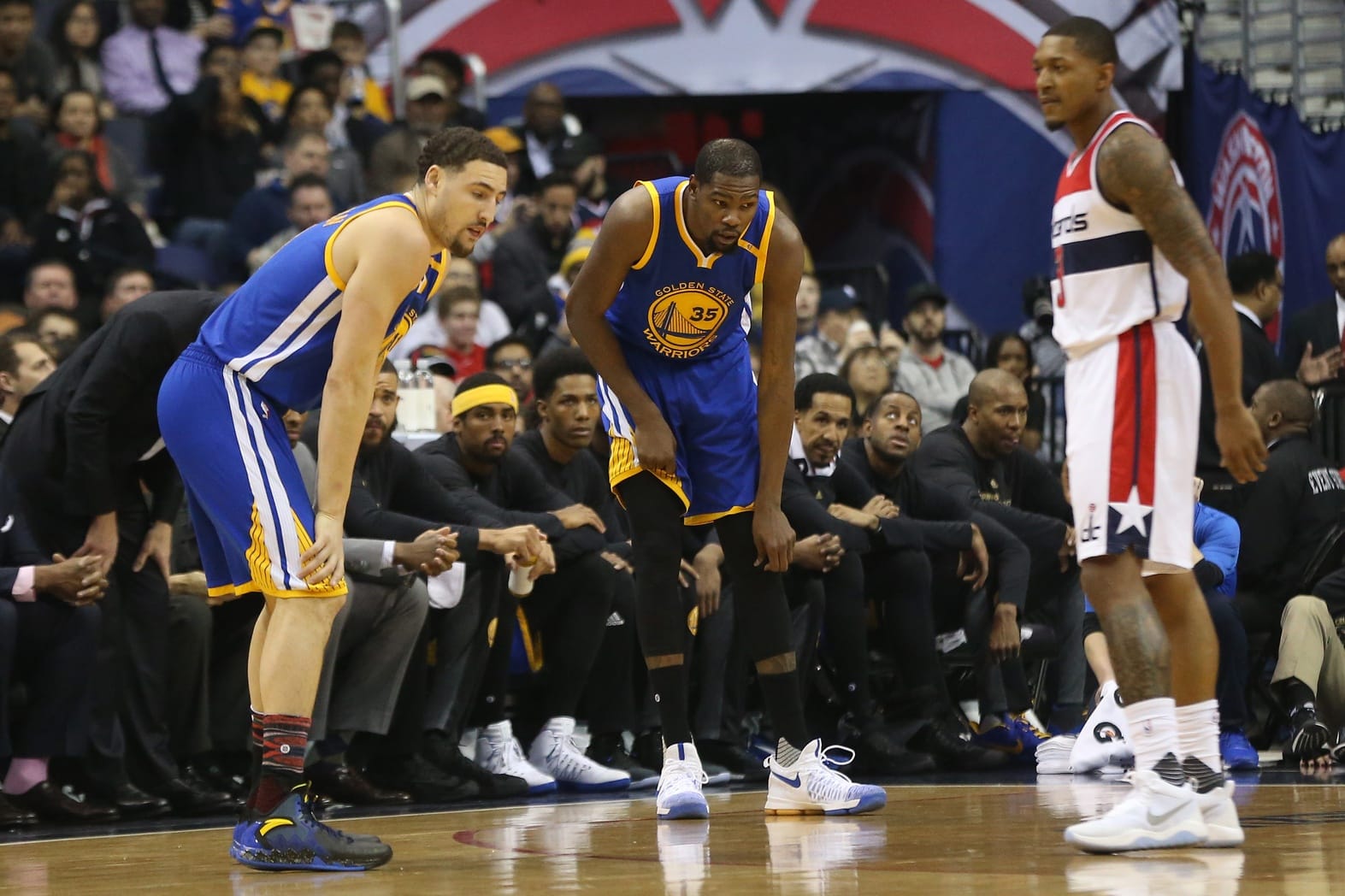
We already knew this subconsciously, but it didn’t really hit until the first quarter of Game 4 against the Portland Trail Blazers. At one point, Golden State led 35-9 and everyone collectively remembered, “Oh yeah, this is a historically great team.”
There’s been a degree of Warriors fatigue; we spent last season fawning over them, then they lost in the Finals and went out and added a top-3 player. That may have ruined the magic of seeing the Warriors on a nightly basis, but it shouldn’t have.
During the regular season, the Warriors had an 11.63 point differential, fourth all-time. And that was with Kevin Durant missing a month, Steve Kerr sitting star players and taking built-in losses every so often. Why isn’t anyone asking if these Warriors could beat the ’96 Bulls? Why isn’t anyone wondering if this is the greatest team ever?
Yeah, there’s a while to go in the postseason, but has there been a team with a better chance of sweeping everyone? The Western Conference is weak and the Cavs looked vulnerable against the Pacers. Over the next three rounds, the Warriors will probably falter at least once, but they have a better shot of running the table than anyone since the 2001 Lakers, who went 15-1.
We’re seeing what could potentially be one of the best teams ever. And more people are complaining about how it happened than appreciating it. The Warriors are so darn good that even with Durant below 100 percent and their freaking coach potentially missing the rest of the postseason, we’re sitting here contemplating if they can be the first team ever to go undefeated in the postseason. Let’s enjoy watching greatness.